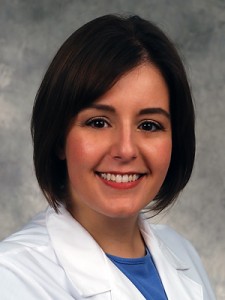
Whether affecting children or adults, musculoskeletal tumors are relatively rare, with approximately 10,000 malignant cases diagnosed annually in the United States. Orthopaedic oncologists or musculoskeletal tumor surgeons are equally uncommon, with only around 250 specialists in the entire country. This small group includes Dr. Tessa Balach, a respected orthopaedic oncologist who recently joined the Health Center’s Department of Orthopaedic Surgery in the New England Musculoskeletal Institute. Working alongside an integrated medical team that includes adult and pediatric oncologists, radiologists, radiation oncologists, plastic surgeons, and pathologists, Balach delivers cutting-edge treatment for benign and malignant tumors of the bone and soft tissues, in addition to metastatic disease.
“Bone and soft tissue tumors benefit from treatment by someone with specialized training in this area,” Balach says. In part, she adds, because treatment does not always follow an obvious path and also because treatment options are expanding with new technologies.
Benign bone tumors are more common than malignant ones and are not life-threatening. “If bone integrity is not jeopardized, sometimes treatment begins with close observation for tumor growth,” Balach notes. “If the tumor grows and the bone is at risk of breaking, the tumor should be surgically removed.”
On the other hand, malignant bone tumors, including primary bone sarcomas and metastatic bone tumors, are often treated with a combination of surgery, radiation or chemotherapy. It’s in the surgical arena that Balach and the Health Center are making important strides forward. “Musculoskeletal tumor surgeons are now starting to adopt navigation technology for some of our surgical procedures. It allows us to use CT and MRI images to guide the removal of complicated bone tumors,” she says.
Given the serious nature of her subspecialty, Balach is quick to offer patients compassion in addition to advanced surgical skill: “Patients often come to me after a physician or an orthopaedic surgeon notices an abnormality on X-ray, CT scan, or MRI. They’re scared. I assure them that will work to get to the bottom of this — first with an accurate diagnosis and then with the highest level of care possible.”
Follow the UConn Health Center on Facebook, Twitter and YouTube.



